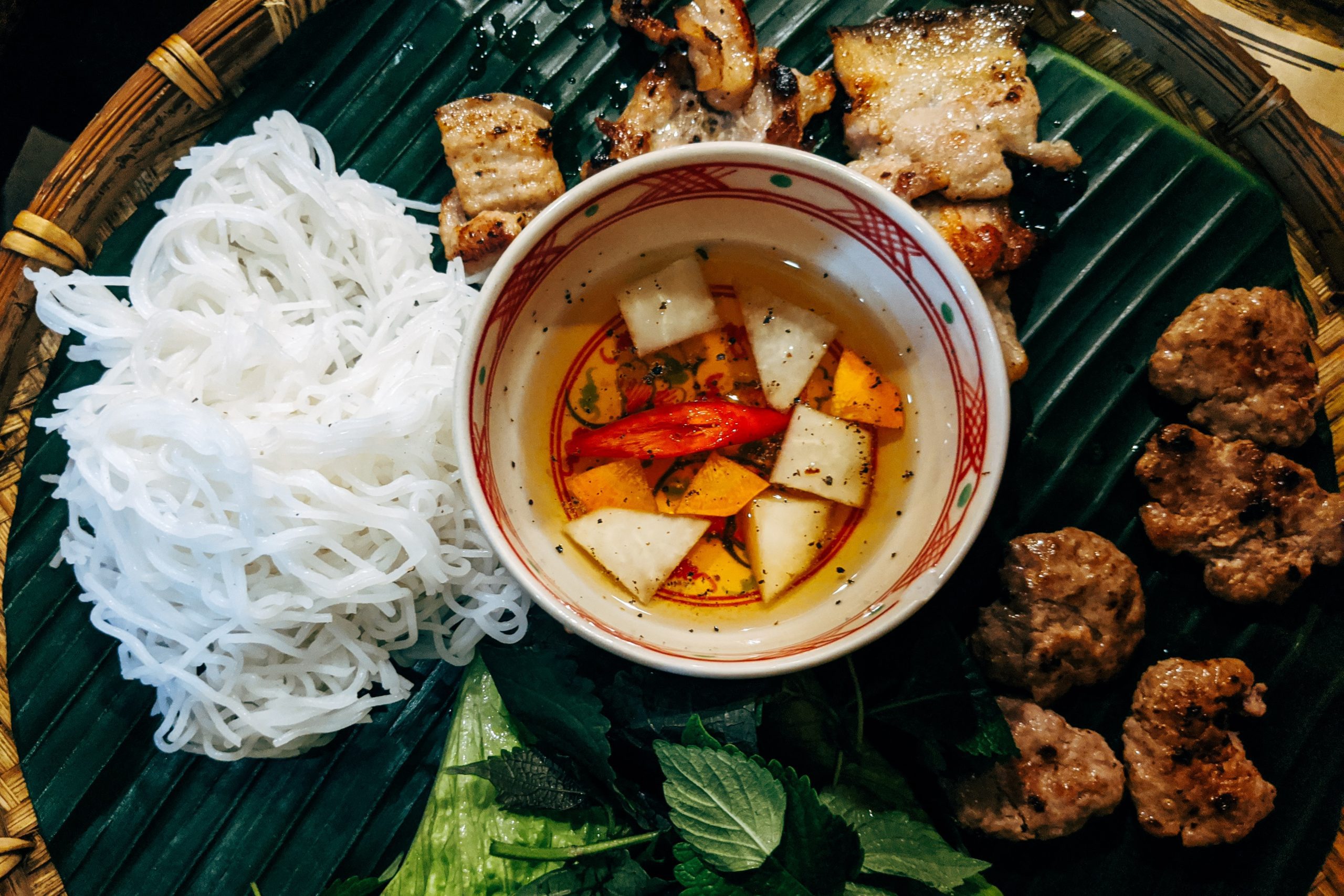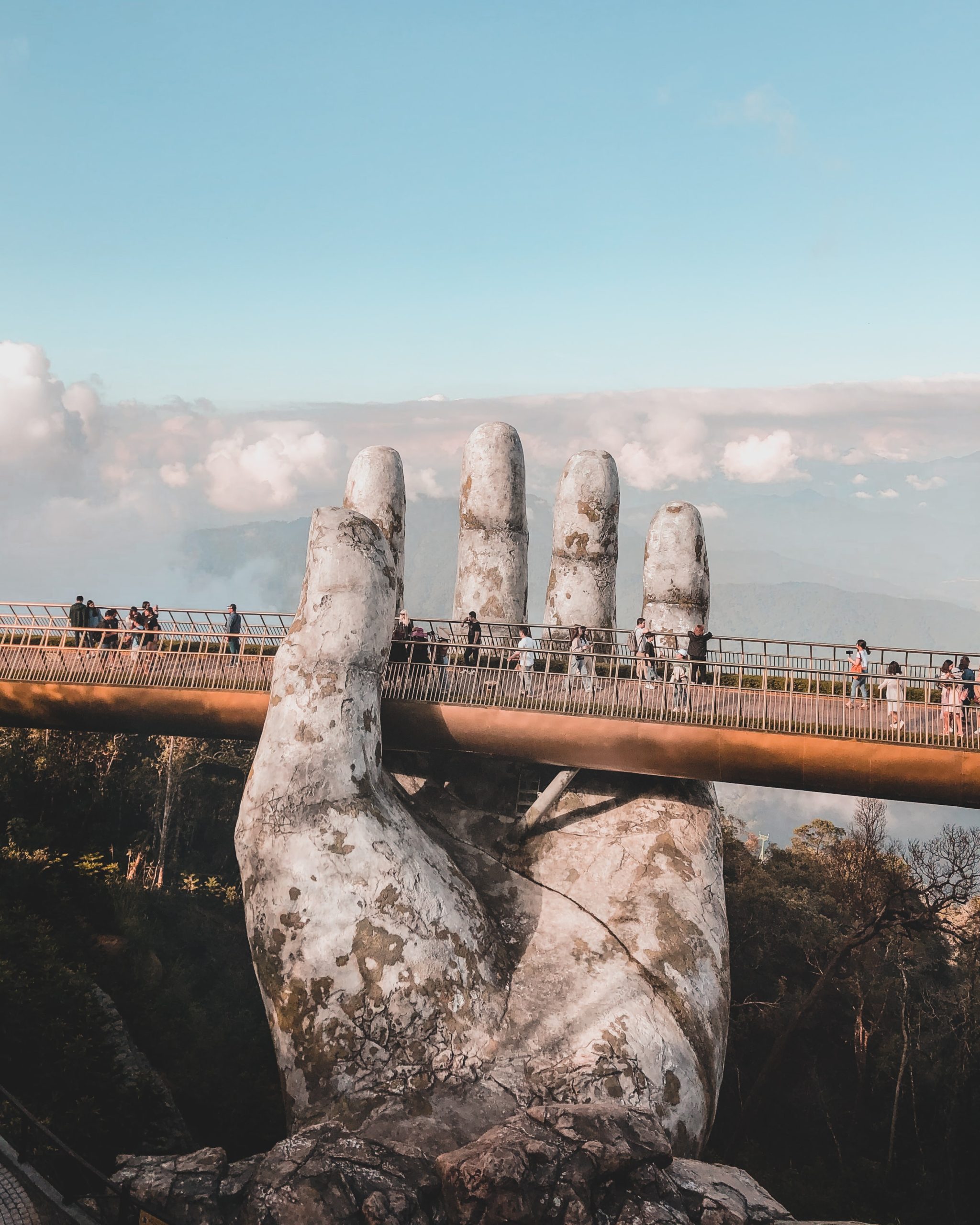Eating & Drinking
“The secret to Vietnam’s phenomenal cuisine is ying-yang. The philosophy of balance and two elements complementing each other is the heart of Vietnamese food culture.”
As in many Asian culinary traditions, Vietnamese cuisine is based on five fundamental tastes. In almost every quintessential dish, these five tastes complement each other in terms of color, acidity, and overall flavor. Fresh ingredients have been the staple for centuries, without giving much room for oil and dairy products. Sugars and gluten are also somewhat missing from the cuisine, which makes Vietnamese food one of the most healthy diets in the world. Above that, the subtle taste and lightness of it will give your tastebuds a feast. Influences from China, Laos, and France are present, adding valuable tastes to the wonderful food scene of Vietnamese culture.
The traditional dishes to try in Vietnam are mainly broths, soups, wraps, and rolls of stir-fried veggies. Food in Vietnam has intriguing textures and a carnival of different tastes. Soup-like dishes such as Mì Quảng and Phở feature sticky rice noodles and crackers, the favorite product of the country by all means, along with local vegetables. You will find them change shape and name as you travel from the north to the south. Spring rolls are another iconic food that makes perfect street bites, whether fried or boiled. A natural outcome of the country’s close relationship to the sea, fish stews, and seafood fries are popular. Street food is essential to Vietnamese culture. Never hesitate to try some local delicacies from traveling vendors or floating markets.
When it comes to drinks, Vietnam knows how to hail its myriad exotic fruits and iconic agricultural products. The most popular drinks to try in Vietnam are cool beverages made of sugar cane, fresh coconuts, dragonfruit and jackfruit, and artichoke. Above these, Vietnam is proud of its sticky rice wine, often taken in shots and guaranteed to give you a mood lift.



